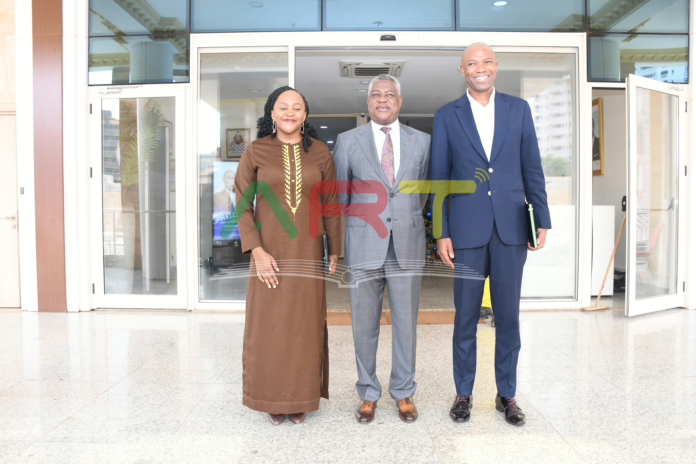[Digital Business Africa] – On February 11, 2025, I listened to U.S. Vice President James David Vance at the Grand Palais in Paris during the AI Action Summit. His remarks sparked a reflection about the American company SpaceX, which is deploying its satellite internet solution, Starlink, in many African countries, including Cameroon. Yes, I couldn’t help but think about Cameroon. In Paris, JD Vance advocated for a liberal and optimistic vision of artificial intelligence (AI).
However, after praising American technological advancements in AI, he strongly criticized the excessive regulations imposed by some governments on U.S. companies, stating that the United States can no longer accept this.
“WE ARE TROUBLED BY THE FACT THAT SOME GOVERNMENTS ARE CONSIDERING TIGHTENING SCREWS ON U.S. COMPANIES IN THEIR COUNTRIES. THE UNITED STATES CANNOT ACCEPT THIS. IT IS BAD FOR THE UNITED STATES BUT ALSO FOR YOUR COUNTRIES,” HE DECLARED.
“MANY OF OUR COMPANIES FACE ENORMOUS REGULATIONS, SUCH AS POLICING MISINFORMATION AND DISINFORMATION. FOR SMALLER BUSINESSES, THESE RULES ARE DIFFICULT TO MANAGE, WITH HIGH COSTS, FINES, AND SOMETIMES EVEN USER BLOCKADES,” EXPLAINED DONALD TRUMP’S RUNNING MATE IN THE RECENT U.S. PRESIDENTIAL ELECTION.
While his speech was primarily directed at European countries, the U.S. Vice President’s message also applies to African nations, especially those complicating the operations of American companies active in Africa. Among these companies is Elon Musk’s Starlink, a staunch supporter of Donald Trump who needs no introduction. Many African countries, such as Cameroon, Ivory Coast, the Democratic Republic of Congo, and Guinea, have asked SpaceX to halt the deployment of Starlink.
Very recently, Starlink, which had planned to launch in Cameroon in 2025, postponed its deployment to 2026. This suggests obstacles in the review process for Starlink’s application.
Re-examining Starlink Bans and Blockades
Considering the arrival of Donald Trump and his ally Elon Musk at the White House, the pivotal role Elon Musk, the head of Starlink, now plays in the Trump administration (as head of the Department of Government Efficiency, DOGE), and the assertive tone of JD Vance’s speech, I believe it is time for African countries to reconsider their stance on Starlink. They should expedite the processing of Elon Musk’s company’s application and others. This is especially crucial in a context where the United States has ended all aid and support programs for many countries, including those in Africa.
Given the Trump administration’s aggressive strategy of managing and protecting U.S. interests on the international stage, hindering the deployment of American companies is not advisable. This is even more true for a company owned by Elon Musk. His “DOGE Kids” are undoubtedly on standby, preparing to respond to governments that obstruct US companies’ operations and, by extension, their interests.
Against Internet Censorship
The U.S. Vice President’s speech undoubtedly reflects what is being prepared at the heart of the Trump administration. Moreover, it is a message to African governments that block the internet during crises or elections. Vance warned against using AI for censorship or controlling opinions.
For Africa, this means that African governments must avoid using AI to monitor or suppress dissenting opinions and should enact laws to ensure that AI tools used by governments (such as facial recognition) respect citizens’ fundamental rights.
In South Africa, for example, debates are ongoing on regulating the use of facial recognition by law enforcement to prevent abuses.
Vance emphasized the importance of creating a regulatory environment that encourages innovation rather than stifling it. African governments must balance protecting citizens (especially regarding personal data) and creating a framework conducive to innovation. Like the United States, African countries could establish “innovation zones” or “regulatory sandboxes” to allow startups and companies to test AI solutions without fear of immediate sanctions.
A “regulatory sandbox” is currently being implemented in Cameroon. In Rwanda, however, the government has already established policies favorable to emerging technologies, such as drones, by creating a flexible regulatory framework that has attracted international investments and partnerships. This is not yet the case in Cameroon, where some have recently spent days in jail for using or promoting the use of drones.
This is also a way to ask African countries to regulate multinational activities more carefully without excessive regulation. African nations could require foreign companies to comply with local laws, contribute to the local economy (e.g., through taxes or skills transfers), and protect African users’ data without hindering the operations of American companies. This already implies that states must enact personal data laws, as seen in Nigeria, Kenya, and, more recently, Cameroon.
Finally, for better international collaboration, African countries must actively participate in global forums on AI to defend their interests, share their experiences, and learn from others.
For example, African countries were notably underrepresented at the AI Action Summit in Paris. It is imperative that African nations have a more substantial presence and involvement in these international forums on the development, future, and regulation of AI and digital technologies and that they better understand and decode Vance’s message.
By Beaugas Orain DJOYUM, Publishing Director of Digital Business Africa and CEO of ICT Media STRATEGIES.
Read also:
– JD Vance Speaks Frankly at the AI Action Summit: “The United States Can No Longer Accept These Restrictions!”
– Internet: Why Cameroon and Africa Should Negotiate with Starlink, Not Reject It
Internet : Pourquoi le Cameroun et l’Afrique doivent négocier avec Starlink et non le repousser
– Starlink in Cameroon: The Ministry of Posts and Telecommunications Asks SpaceX to Suspend Its Satellite Internet Services








